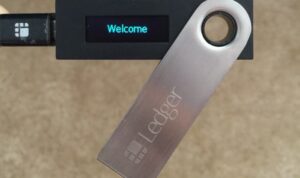Privacy coins, a crucial aspect of the cryptocurrency world, offer users a shield of anonymity and security in their transactions. With cutting-edge technology and innovative features, privacy coins have revolutionized the way we perceive digital currencies.
As we delve deeper into the realm of privacy coins, we uncover the intricate mechanisms and real-world applications that make them a game-changer in the market.
Introduction to Privacy Coins
Privacy coins are a type of cryptocurrency that focus on providing enhanced privacy and anonymity for users during transactions. These coins utilize various technologies to ensure that the sender, recipient, and transaction amount remain confidential.
Privacy is crucial in cryptocurrency transactions as it helps protect users from surveillance, identity theft, and potential financial crimes. By using privacy coins, individuals can have a higher level of security and confidentiality in their digital financial interactions.
Technology behind Privacy Coins
Privacy coins implement advanced cryptographic techniques such as ring signatures, stealth addresses, and zero-knowledge proofs to obfuscate transaction details. These technologies help in masking the identities of the parties involved and make it difficult for external parties to trace or analyze transactions.
- Ring Signatures: This technology enables a group of possible signers to sign a transaction, making it impossible to determine the actual sender.
- Stealth Addresses: These generate unique, one-time addresses for each transaction, enhancing privacy by preventing address reuse.
- Zero-Knowledge Proofs: This allows a user to prove the validity of a transaction without revealing any sensitive information, providing a high level of privacy.
Popular Privacy Coins
Privacy coins are a subset of cryptocurrencies that prioritize user anonymity and transaction privacy. These coins utilize various technologies such as stealth addresses, ring signatures, and zero-knowledge proofs to ensure privacy and confidentiality of transactions. Let’s explore some of the popular privacy coins in the market and compare their features.
Examples of Popular Privacy Coins
- Monero (XMR): Monero is one of the most well-known privacy coins, offering robust privacy features such as ring signatures and stealth addresses. It is highly fungible and provides strong privacy protections for its users.
- Zcash (ZEC): Zcash utilizes zero-knowledge proofs to enable private transactions. Users can choose between transparent or shielded transactions, providing flexibility in privacy options.
- Dash (DASH): Dash offers optional privacy features through its PrivateSend feature, which mixes coins from multiple users to obfuscate the transaction trail. It provides faster and more scalable privacy compared to some other privacy coins.
Comparison of Features
| Coin | Privacy Technology | Market Capitalization | Adoption |
|---|---|---|---|
| Monero (XMR) | Ring Signatures, Stealth Addresses | $3.5 billion | Widely adopted in darknet markets and privacy-focused communities |
| Zcash (ZEC) | Zero-Knowledge Proofs | $1 billion | Used by financial institutions and individuals seeking enhanced privacy |
| Dash (DASH) | PrivateSend (Coin Mixing) | $1.2 billion | Accepted by some merchants and popular for fast, private transactions |
Market Capitalization and Adoption
Privacy coins have garnered significant attention in the cryptocurrency space due to the growing demand for privacy and anonymity in financial transactions. The market capitalization of privacy coins continues to increase as more users recognize the importance of preserving their financial privacy. Adoption of privacy coins varies across different user groups, with some preferring the enhanced privacy features offered by these coins compared to traditional cryptocurrencies like Bitcoin.
Privacy Features
Cryptocurrencies that prioritize privacy offer a range of features to ensure the confidentiality and anonymity of transactions. These features are essential for users who value their privacy and want to keep their financial activities secure from prying eyes.
Role of Privacy Protocols
Privacy protocols play a crucial role in safeguarding the anonymity of users in privacy coins. By utilizing advanced cryptographic techniques, these protocols ensure that transactions are obfuscated and unlinkable, making it difficult to trace the flow of funds back to individual users. This level of privacy is achieved through the use of technologies such as ring signatures, stealth addresses, and zero-knowledge proofs.
Mechanisms for Transaction Privacy
– Ring Signatures: Privacy coins like Monero use ring signatures to mix a user’s transaction with others, making it challenging to identify the actual sender.
– Stealth Addresses: By generating a unique one-time address for each transaction, stealth addresses prevent the correlation of funds between different transactions.
– Zero-Knowledge Proofs: This cryptographic method allows users to prove the validity of a transaction without revealing any sensitive information, ensuring complete confidentiality.
Use Cases of Privacy Coins

Privacy coins have various use cases in industries where anonymity and confidentiality are crucial. These digital currencies offer a secure way to conduct transactions and store value without revealing personal information. Let’s explore some common scenarios where privacy coins are used and the advantages they provide.
E-commerce
- Privacy coins are increasingly being used in e-commerce platforms to protect the financial information of buyers and sellers.
- They offer a high level of privacy and security, reducing the risk of identity theft and fraud.
- Examples of privacy coins used in e-commerce include Monero and Zcash.
Dark Web Transactions
- Privacy coins are commonly used on the dark web for anonymous transactions for goods and services that may not be legal.
- They provide a way for individuals to make purchases without leaving a trace of their identity.
- Monero is a popular choice for dark web transactions due to its strong privacy features.
International Money Transfers
- Privacy coins are utilized for international money transfers as they offer faster and cheaper transactions compared to traditional banking methods.
- They enable individuals to send funds across borders without the need for intermediaries, reducing fees and processing times.
- Dash and Zcash are examples of privacy coins commonly used for international remittances.
Privacy Concerns and Criticisms
Privacy coins, despite their advantages, are not without their share of concerns and criticisms. Let’s delve into some of the potential risks, regulatory challenges, and common criticisms associated with using privacy coins.
Potential Risks of Using Privacy Coins
- Increased illicit activities: Critics argue that privacy coins can facilitate illegal activities such as money laundering, drug trafficking, and terrorism financing due to their anonymous nature.
- Lack of transparency: The anonymity provided by privacy coins can make it challenging to trace transactions, potentially leading to issues with compliance and regulation.
- Regulatory scrutiny: Governments and regulatory bodies are increasingly concerned about the use of privacy coins, leading to potential restrictions or bans on their use in certain jurisdictions.
Regulatory Challenges Faced by Privacy Coin Projects
- Compliance with anti-money laundering (AML) and Know Your Customer (KYC) regulations: Privacy coin projects often struggle to comply with these regulations due to the inherent privacy features that make it difficult to identify users.
- Pressure from regulators: Privacy coin projects face constant pressure from regulators who are wary of the potential misuse of these coins for illegal activities.
Common Criticisms Regarding the Use of Privacy Coins
- Association with criminal activities: Privacy coins are often criticized for being associated with criminal activities due to their anonymity, leading to negative perceptions in the public eye.
- Limited mainstream adoption: Critics argue that the anonymity provided by privacy coins hinders their mainstream adoption, as businesses and individuals may be wary of using them for legitimate transactions.
- Regulatory uncertainty: The evolving regulatory landscape surrounding privacy coins creates uncertainty for users and investors, potentially hindering the growth of these projects.
Privacy Coins vs. Traditional Cryptocurrencies

Privacy coins offer a level of anonymity and confidentiality that traditional cryptocurrencies like Bitcoin do not provide. Let’s delve into the key differences and implications of privacy coins in the digital currency landscape.
Privacy Features
Privacy coins such as Monero, Zcash, and Dash utilize advanced cryptographic techniques to obfuscate transaction details, making it nearly impossible to trace the sender, recipient, and transaction amount. In contrast, traditional cryptocurrencies like Bitcoin operate on a transparent ledger where all transactions are visible to anyone with access to the blockchain.
Addressing Limitations of Transparency
Privacy coins address the limitations of transparency in blockchain transactions by implementing features like stealth addresses, ring signatures, and zero-knowledge proofs. These technologies ensure that user identities and transaction details remain private and secure, protecting users from surveillance and potential exploitation.
Implications on Digital Currencies
The rise of privacy coins has significant implications on the future of digital currencies. As concerns over data privacy and financial security continue to grow, users are increasingly turning to privacy-focused cryptocurrencies to safeguard their sensitive information. This shift towards anonymity and confidentiality could reshape the way we perceive and use digital assets, leading to a more secure and private financial ecosystem.
Security and Anonymity
Privacy coins play a crucial role in ensuring security and anonymity for users in the world of cryptocurrencies. These coins utilize advanced encryption methods and technologies to protect user data and transactions, offering a high level of privacy that traditional cryptocurrencies lack. Let’s delve into how privacy coins achieve security and anonymity for their users.
Encryption Methods and Technologies
Privacy coins rely on sophisticated encryption methods like zero-knowledge proofs, ring signatures, and stealth addresses to obfuscate transaction details and maintain user anonymity. Zero-knowledge proofs allow transactions to be verified without revealing any sensitive information, while ring signatures mix a user’s transaction with others to prevent tracing back to the original sender. Stealth addresses provide additional privacy by generating unique addresses for each transaction, making it difficult to link transactions to a specific user.
Fungibility and Its Importance
Fungibility is a crucial concept in privacy-focused cryptocurrencies, ensuring that each unit of the currency is interchangeable and indistinguishable from another. This means that coins cannot be tainted or blacklisted based on their transaction history, preserving the privacy and security of users. Fungibility is essential for maintaining the anonymity of transactions and preventing censorship or discrimination based on the origin of the coins.


